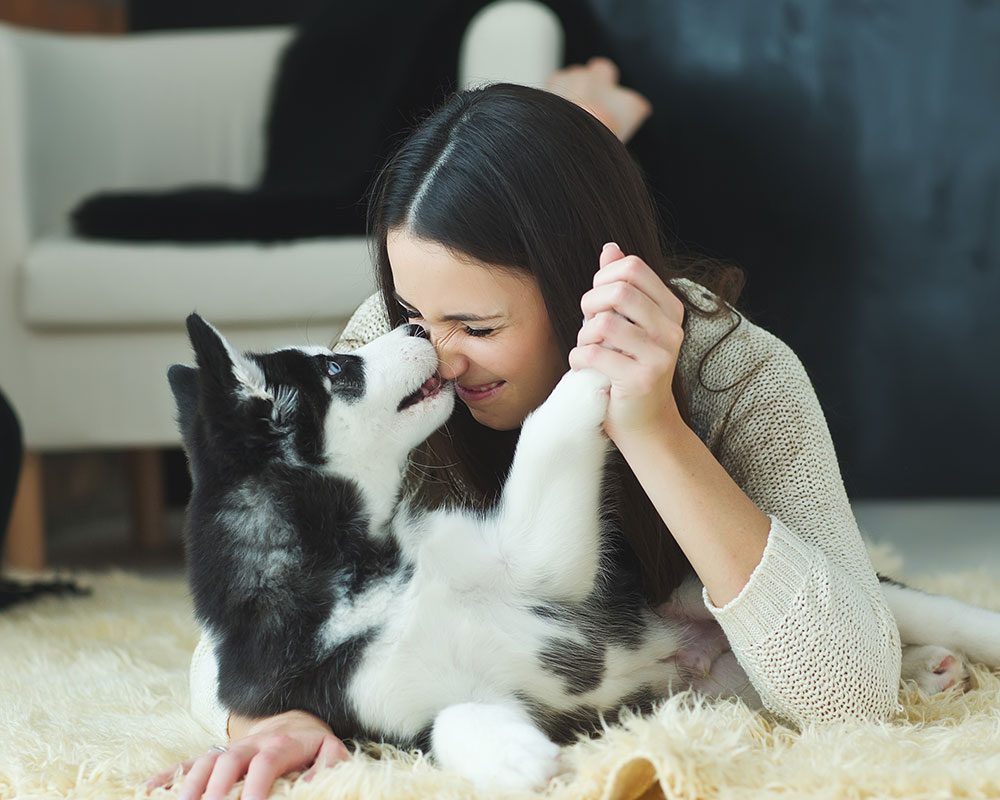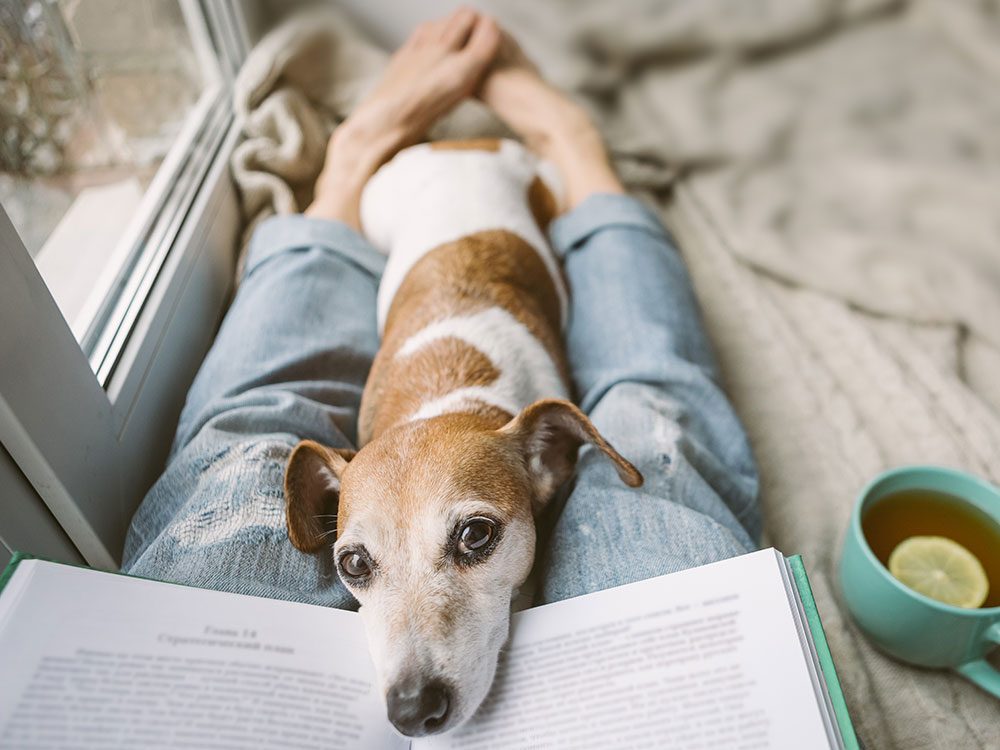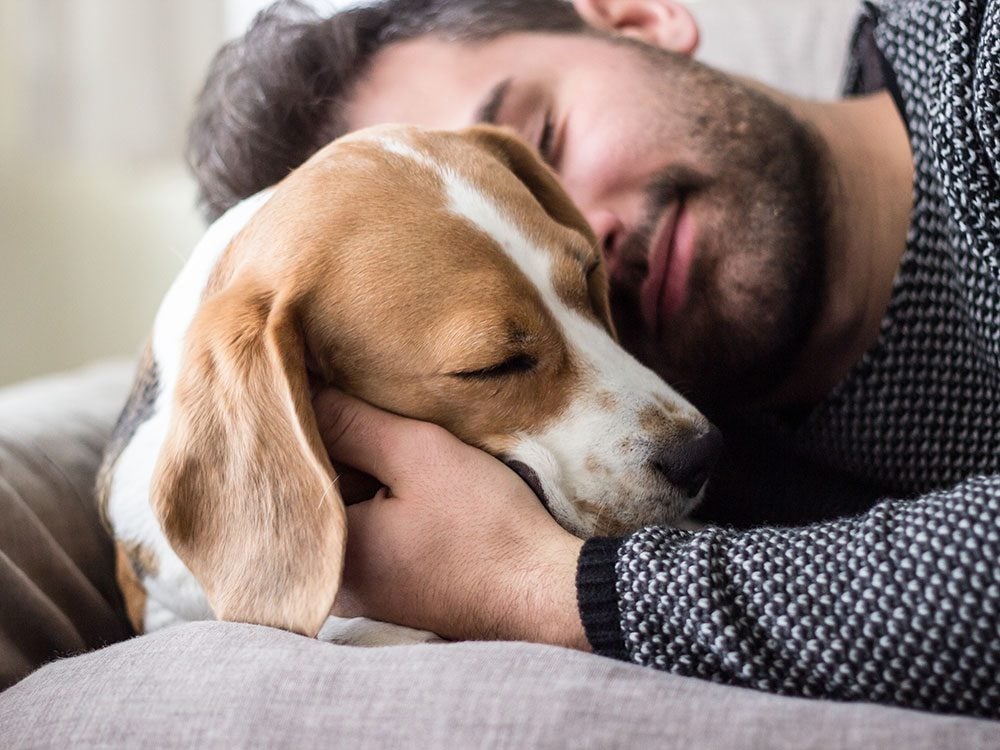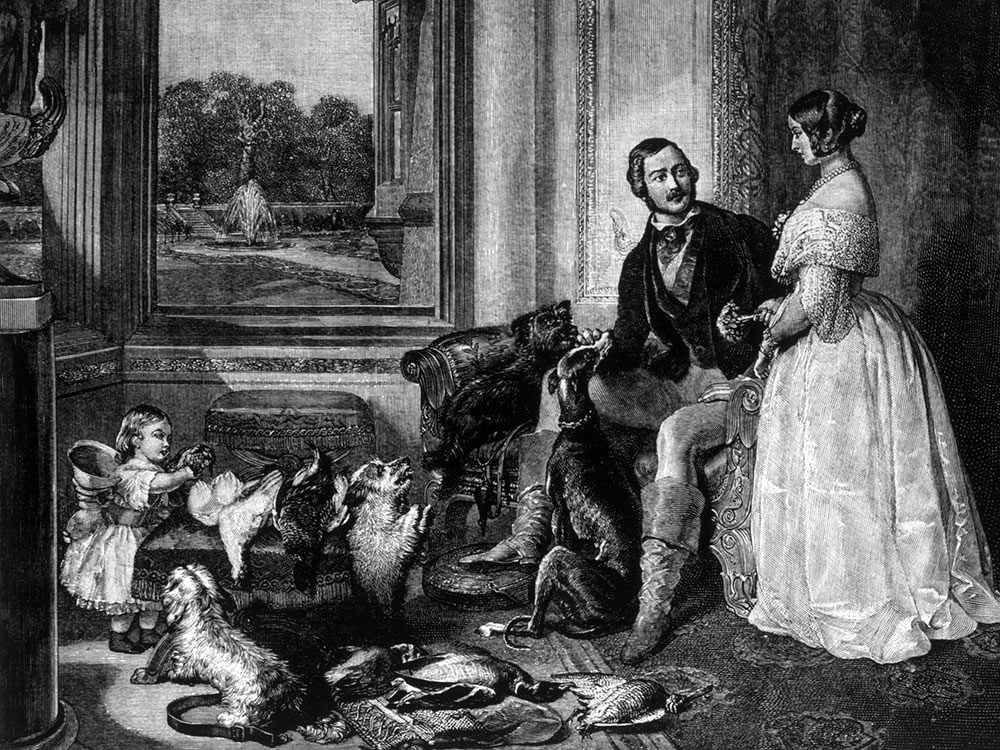
Does My Dog Love Me More Than Dinner?
In a scenario where a pup had to choose between their kibble and their human, which would win?
Generally they’ll choose their caregiver. Dogs have been domesticated, but they still have a pack mentality, which means they develop a real affection for the other members of their group. For both dogs and humans, our safety depends on the support we get from those we live with. If you give them up for a meal, that may be your last one.
Are some dog breeds more loyal than others? More affectionate?
Often those two qualities are intertwined, which you see with breeds like retrievers and spaniels, who will sit on your lap and lick the makeup off your face. They are companion dogs that are bred for empathy. Then you have the less affectionate working dogs that are most likely to assist and protect their master.
Like Lassie running into a burning building to rescue those inside?
Right. These dogs are trained to do their jobs, but are still more loyal to a family member than to a stranger.
These are the most popular dog breeds.

Do dogs experience moods like humans do? I love my boyfriend more than dinner, but sometimes I just want to be alone with a pizza.
Dogs definitely have those same fluctuations and can be more social or anti-social at different times. If a dog has had a big active day, they might plop down on the couch and barely bat an eye at you before they’re snoring. Canines also experience some of the same mental health issues as humans: depression, obsessive compulsive disorder and phobias. (Learn to spot the signs your dog is depressed.)
If dogs and humans are so similar emotionally, why are we always hearing about experiments on chimps and not chihuahuas?
Monkeys are certainly genetically closer to us, although we know a lot less about them. Back in the 1870s, Charles Darwin wrote a book called The Expression of Emotions in Man and Animals, in which many of his examples compare dogs and humans. For instance, he wrote that when dogs feel threatened, they make themselves as small as possible—and do the opposite when they want to be threatening. Humans, Darwin noted, do the same. (Here’s what your dog’s facial expressions really mean.)
Do we both experience love in the same ways, too?
There are similarities. Twenty years ago, scientists discovered the “love hormone” effects of oxytocin, and we now know that dogs possess it as well.

Is there a canine equivalent to the seven-year itch?
Well, they’re not going to suddenly get a makeover and start looking for a new owner—but the relationship does change. In the early stages, your dog might follow you from room to room and freak out when you leave, which is sort of like the lust period in human relationships. Later, you share companion love, which is about comfort and security. Nobody’s jumping up and down, but just being together is enough.
One of your books is called The Modern Dog. How are our pets today different from the ones of yore?
The most significant thing is that a dog’s place in society is different now.
So true—there are dogs who eat better than I do.
Exactly. Originally dogs were guards, hunters and herders. As we became more affluent, we showered some of that excess money on our dogs and they have, in turn, become more like family members.
And now there are some dog owners who might choose their pets over their own dinner—the type that will even equate their “fur babies” with human children.
Yes, and in the absence of kids in the household dogs can play an important role. As humans are now living well past the age when our offspring leave the house, many people have an enduring need to nurture someone. Dogs do a really nice job of filling that niche. Also, there are certain advantages to being a dog parent. A dog’s never going to do drugs, for instance, or ask to borrow the car.
Learn to spot the signs your dog is secretly mad at you.
Stanley Coren is a professor emeritus of psychology at the University of British Columbia and the author of How Dogs Think.

More fascinating facts about our relationships with our dogs
A Queen’s Best Friend
“Puppy parents” might be a modern phenomenon, but human-canine companionship goes back hundreds of years. In the early 19th century, for example, Queen Victoria often posed for portraits with her beloved spaniel Dash, and wrote a poetic epitaph for him when he died. (Find out what six dog breeds looked like 100 years ago.)
Healing Touch
Stanley Coren recently finished a study where university students played with dogs for 5 to 10 minutes during exam time. On average, their stress levels dropped by 45 per cent.
Puppy Love
According to a Rover survey of 1,450 dog owners, 67 per cent said they gaze lovingly into their pup’s eyes—and a third do it more often than with their human significant other. (Here’s scientific proof your dog loves the way you smile.)
Next, get to know the smartest dog breeds.